Lemons are a small, yellow citrus fruit that taste sour, smell good and can be used for lots of very simple science experiments as they are acidic.
I’ve collected 5 of my favourite science experiments using lemons for you to try at home. All are very easy and don’t use many resources other than the lemon!
Make a lemon sink
Lemons have a thick, porous skin which allows them to float, but there is a way to make a lemon sink. You just need to remove the skin!
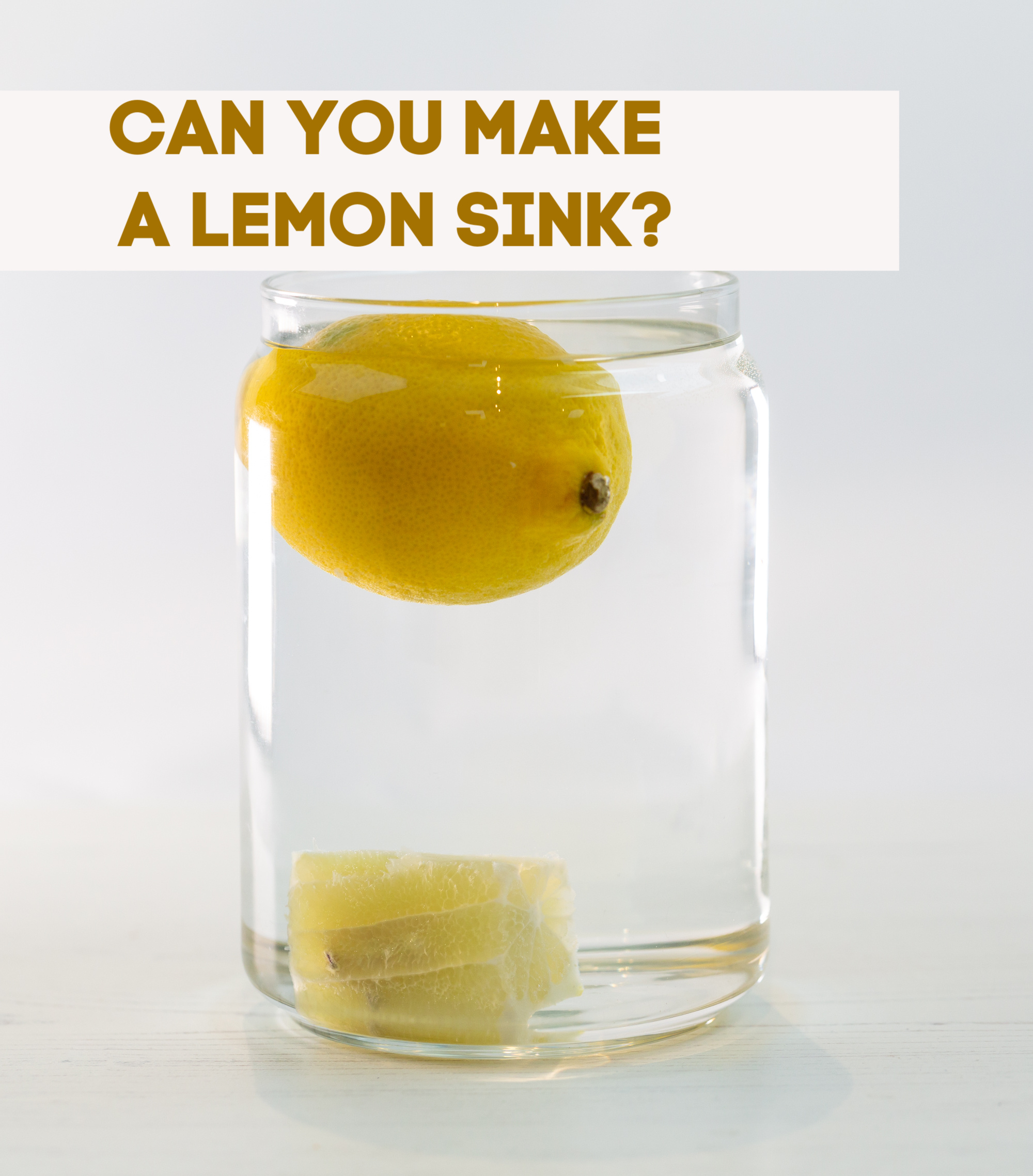
Make a lemon battery
The juice inside a lemon can act as an electrolyte in a lemon battery!
You’ll need copper wire or a copper coin and a zinc ( galvanised ) nail to make a battery with a lemon.
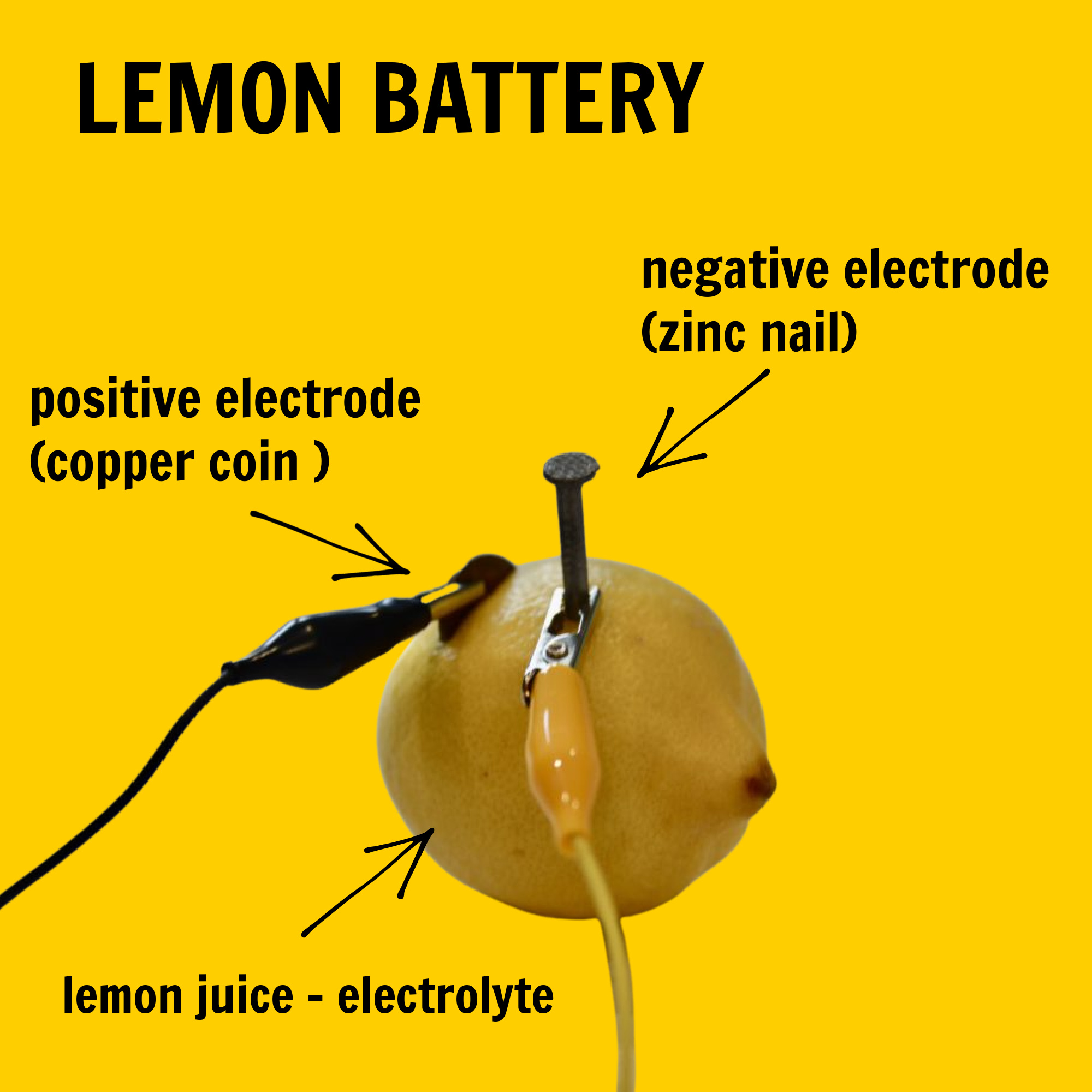
Blow up a balloon with lemon juice
Lemon juice is acidic, if you mix it with an alkali ( base ) such as bicarbonate of soda the two will react to neutralise each other releasing carbon dioxide gas as a by product.
If you add a little lemon juice to a clean, empty bottle, and then pop a bit if bicarbonate of soda into a balloon and place the balloon on top of the bottle so the bicarbonate of soda ( baking soda ) tips into the lemon juice, the carbon dioxide released will fill the bottle and then inflate the balloon!
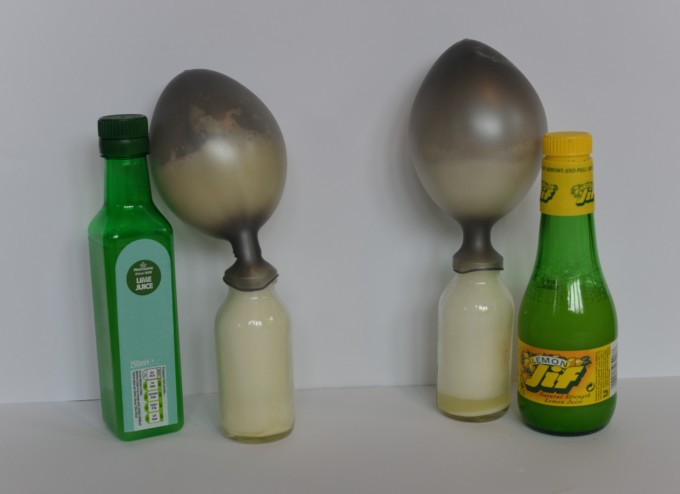
Make fizzy lemons
Make fizzy lemons by adding a little baking soda directly to half a lemon and mixing it. Add a little food colouring for more colourful, fizzy fun.
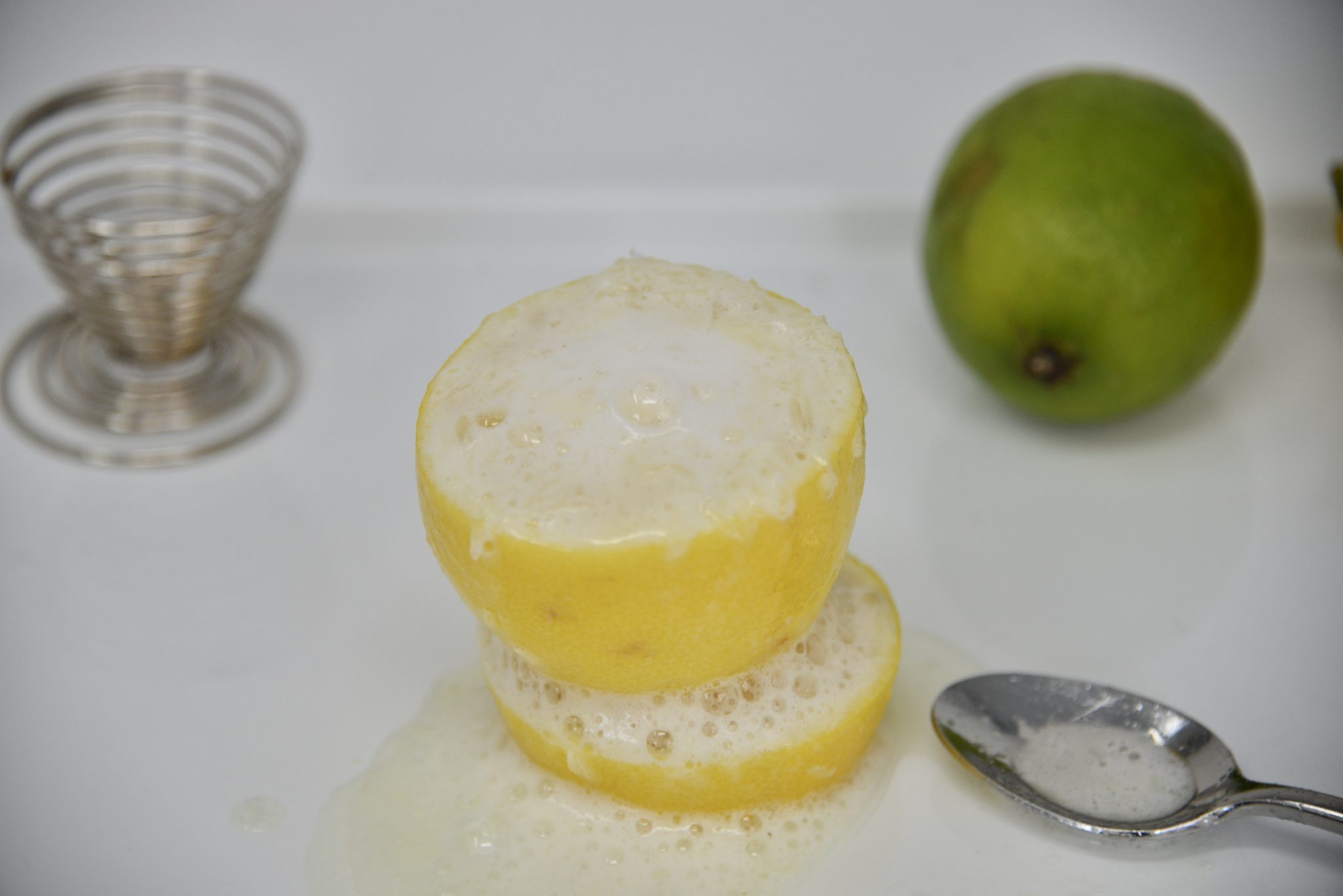
Drop a lemon into a glass
Learn about the law of inertia with this easy demonstration of Newton’s First Law.
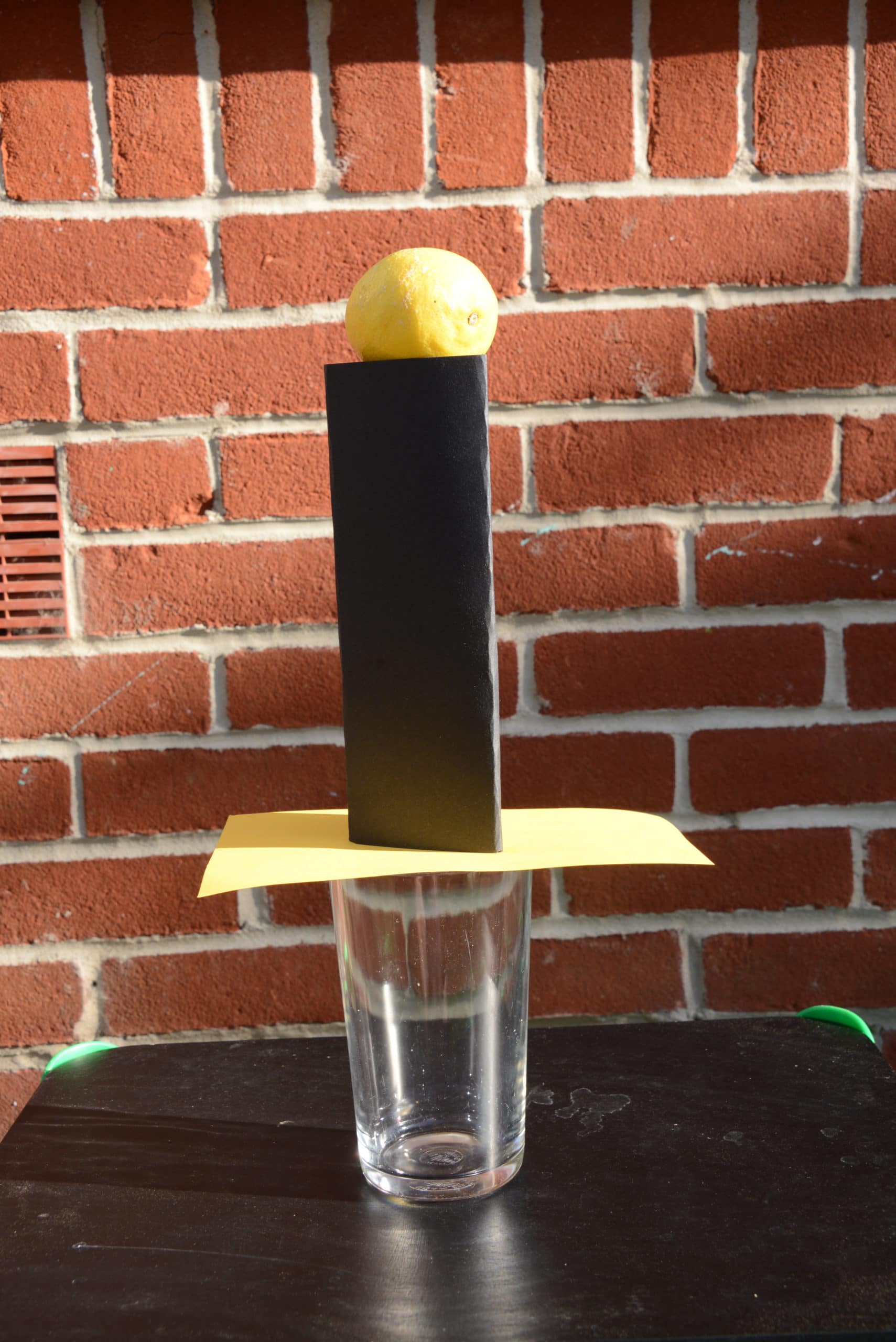
Make homemade lemonade
Use lemons, baking soda and water to make your own fizzy lemonade! You can find a super easy recipe for this in Snackable Science.
Invisible ink with lemon juice
Create your own invisible ink with lemon juice. This is a very simple science activity that is great for kids of all ages. Older children can experiment with lemons, limes and other acids. Write a message on white paper with lemon juice and then place in an oven to reveal it!

Can you think fo any more science experiments using lemons for us?
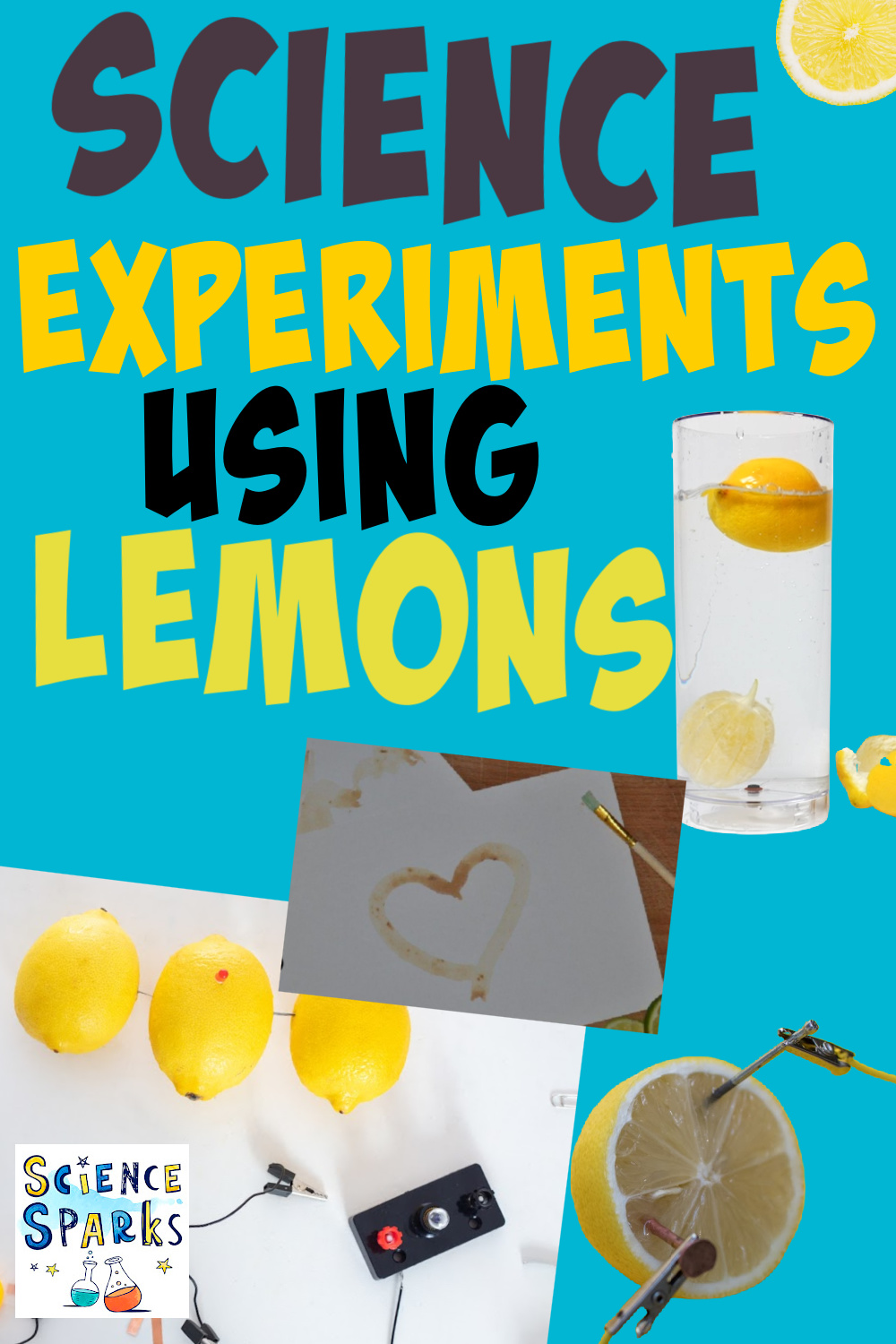
The post 5 Science Experiments you can do with a lemon appeared first on Science Experiments for Kids.
